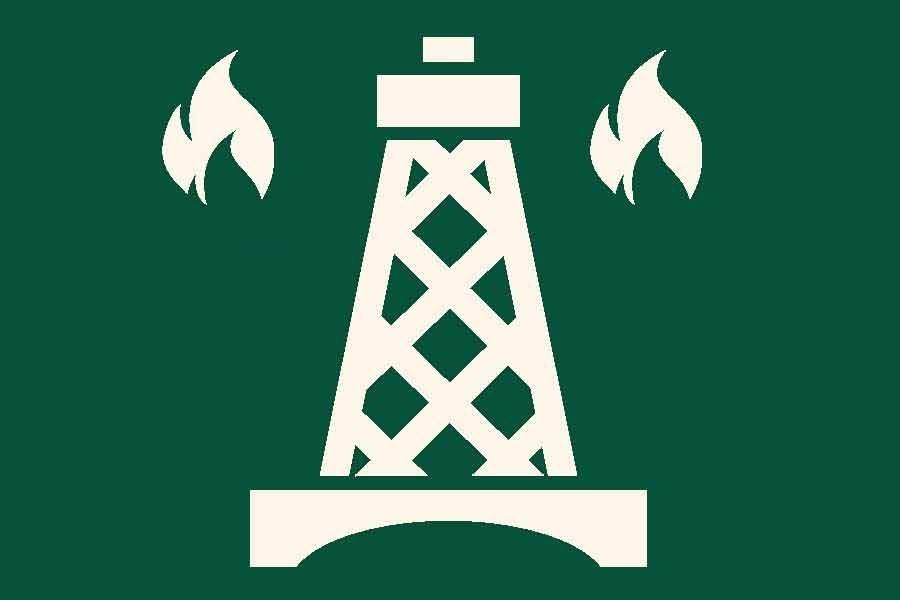
Published :
Updated :

The worse fear of inconsistent and uncertain gas supplies is now a reality. This is something that experts had been warning of for more than a decade but to no avail. Bangladesh's policy shift from its self-reliance in energy in favour of import has put the nation on a path where supply of natural gas is no longer assured, either for manufacturing or for household consumption.
The latest figures that are emerging point to a situation where gas output has suffered a drastic reduction - by about one-third. Now had the economic situation been better, this could have been offset by imports of necessary coal, furnace oil and liquefied natural gas (LNG), but the economic realities of today can hardly be termed good for Bangladesh. Gas-centric industries are suffering massive loss of output and these include manufacturing plants, ferliser factories and at the tail end of the spectrum - the millions of people who depend on piped gas for household consumption.
A report published in this newspaper recently stated: "According to state-owned Petrobangla, the overall natural gas output on November 24 was around 2,613 million cubic feet per day (mmcfd), which is around 30.50 per cent lower than Bangladesh's overall production capacity of 3,716mmcfd. The country's overall natural gas output is, however, nearly half of the overall demand, which is projected by Petrobangla above 4,000mmcfd." Looking at the broader picture, this significant supply crunch is adversely affecting a broad spectrum of consumers. Industrial output in many sectors is now down 50 per cent. Readymade garments (RMG) owners have had to resort to round the clock shift adjustment for maintaining output depending on availability of natural gas, the hundreds of thousands of passenger vehicles and a lot of the light transport vehicles that converted to compressed natural gas (CNG) now can only avail CNG from pumps 18 hours a day because there isn't enough gas to offer.
What was predicted but not heeded to is happening now. Official sources have stated that national gas supply took a sharp downturn this month when US multinational Excelerate Energy stopped LNG re-gasification to overhaul and expand its plant. This is routine maintenance that authorities had been postponing for a long time since there was no alternate FSRU (floating storage and re-gasification unit) available. This situation cut LNG supply by 43 per cent and since the country's own existing natural gas supply has been plummeting alarmingly, the situation came to such as pass.
This sort of situation will continue to happen because not much imported fossil fuel the country can now afford from the international market. Sources point out to the fact that the country owes billions of dollars in back payment to international suppliers of energy and the situation keeps getting worse every month. That the country is no longer able to clinch soft loans to pay for energy imports is also becoming amply clear. In this situation, the Petrobangla has apparently asked the largest producer of natural gas Chevron to increase production by at least 50 mmcfd from three on-shore gas fields. Currently that company is producing approximately "1,246 mmcfd of natural gas from three operating onshore fields - Bibiyana, Jalalabad and Moulvibazar -- located in blocks 12, 13 and 14 respectively."
It is also known that Chevron's gas production constitutes 60 per cent of the total supply from domestic gas fields. Total gas production (including the LNG re-gasification) is about 2,600 mmcfd. Unfortunately, what has been made clear is that Chevron will probably not be able to enhance gas production from its existing fields. Rather, the extra gas may come from the new well in the Bibiyana field if the result from the drilling proves positive. This shortfall is having a serious detrimental effect on RMG that constitutes 85 per cent of export earnings. Naturally the sector is crucial to the national effort but it is impossible for the authorities to divert all gas to sustain just one sector, but unless the situation improves reality may dictate just that.
Gas rationing is hardly conducive to economic growth. The fuel fiasco has led to serious reduction in industrial output and it will also have a serious dampening effect on both domestic and foreign investment. The country is starving for fuel and yet the projects that should be undertaken to expedite discovery and exploration of new natural gas fields are relegated to the backburner. Now the realisation should dawn on the policymakers that dependence on imported fuel is a situation the economy can't afford. There has been zero movement on proven deposits of coal and probable natural gas reserves in the country. The authorities have no answer to this quandary except to do everything possible not to go for serious exploration. The idea of affordable energy is apparently not on the priority list. Hopefully, priorities will change after the national election.


 For all latest news, follow The Financial Express Google News channel.
For all latest news, follow The Financial Express Google News channel.